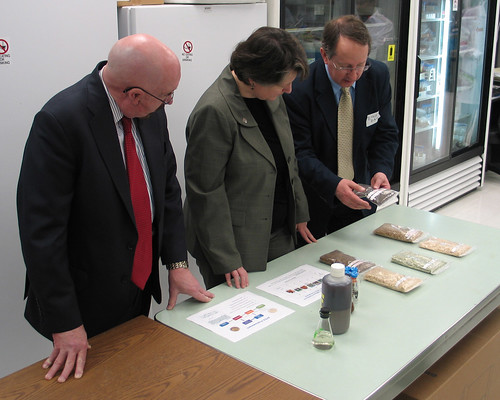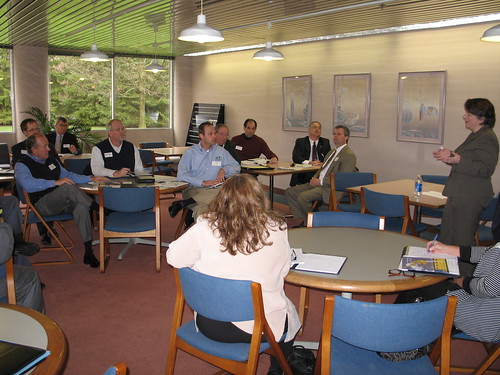Last week, Agriculture Deputy Secretary Kathleen Merrigan visited the campus of Michigan State University to participate in a tour of the cellulosic ethanol pretreatment lab at MBI International and conduct a roundtable discussion with key stakeholders in Michigan’s biofuels community.
MBI is owned by the Michigan State University Foundation and its purpose is to “de-risk” emerging technologies, making them more viable for commercial application. One of MBI’s current projects is developing ways to scale cellulosic ethanol from the laboratory to the marketplace.
Cellulosic ethanol is made from fibrous, non-edible plants, such as switchgrass. It can also be made from the non-edible parts of food crops, like corn stalks – material that typically is thought of as waste. These materials take more processing before the sugars can be coaxed out of them and be converted to ethanol.
Because these are either waste materials or plants that can be grown on land that cannot be used for food crops, they hold enormous potential to meet our energy needs without placing strain on the food supply system.

We kicked off the tour with a briefing by Dr. Bruce Dale, one of the leading authorities on biofuels. He outlined both the obstacles and the opportunities that face this emerging technology.
We then visited the research facilities and then the production area where scaling technologies are being tested.
While there, Deputy Secretary Merrigan also highlighted the support USDA is providing to Michigan State on this projecting with research grants totaling $2.9 million to research various aspect of biofuels.
As the pioneer land grant university, Michigan State has a long and close relationship with USDA, and it is clear that this partnership promises even more benefits to society in the years ahead.
To find out more about how USDA is working to develop renewable energy sources, click here.

